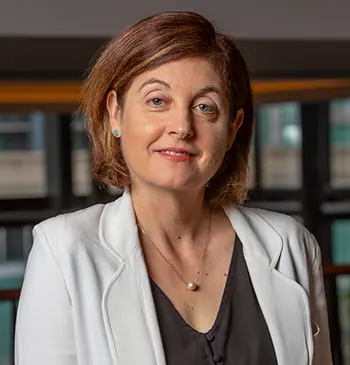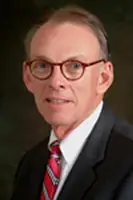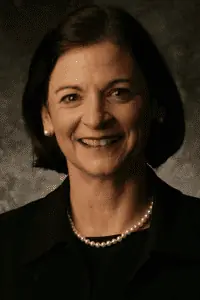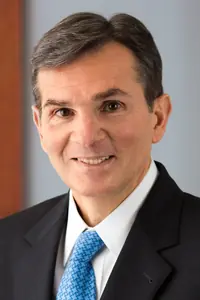
Lessons Learned the Hard Way
Nobody is born knowing how to be a leader. As Lionel Nowell, a director of Bank of America Corp. puts it, “I have learned as much, if not more, from my failures as I have from my successes.” The following are excerpts from conversations with directors and chief executive officers at banks sharing their personal stories about the lessons they have learned about leadership. If you own your own business or managed a team of employees, some of the following stories are familiar to you. They involve hiring or promoting the wrong people, taking the wrong job yourself or watching poor underwriting destroy the bank that employed you. Some of the best leaders pick themselves up from those bad experiences and use them to their advantage later in life. Joe Evans, the chairman of State Bank, radically changed how his bank made hiring decisions. Marsha Williams, the chairman of Fifth Third Bancorp, learned how to keep high performers who might not make good managers. Not all of these stories involve mistakes, but they do offer a window into the mindset of some of banking’s most successful leaders.
LESSON LEARNED:
THERE IS A SCIENCE TO THE EVALUATION OF PEOPLE AND POSITIONS.
Joe Evans, chairman and CEO, Atlanta-based State Bank Financial Corp.
I went out to recruit someone for an executive role and convinced him to move his family for this position. It didn’t take us long to realize the chemistry was just not coming together. I had recently established a relationship with a psychologist named Frank Merritt in Atlanta and asked him to go to the bank. He said if I had called him [before hiring this executive], he could have saved us all a lot of pain and suffering. I had hired a person ill-suited for the position. This was one of the most egregious instances of management malpractice in my career. I failed to evaluate the person as thoroughly as I would have evaluated a credit application.
I think a lot of us, early on in our development as bank managers, go through a phase where we think we’re natural pickers of talent. Frank helped me to realize that there is a science to the evaluation of people and positions. We now use an offshoot of the Kurt Einstein structured interview. We also use psychological profiling that we access through Frank Merritt’s firm for everyone we hire. Psychological profiling gets to 16 criteria, such as attention to detail, working in teams, fact-based or conceptual. We start to see things that are consistent. For instance, almost all of our top loan producers have above average attention to detail. We also use background evaluations. The goal is that those three techniques ought to converge into a consistent picture of the candidate’s strengths and shortcomings, fully acknowledging there are no perfect people, but having eyes fully open as to what the strengths and weaknesses are.
LESSON LEARNED:
WHEN THINGS GO WRONG, YOU TRY TO ACT ASSERTIVELY AND YOU ACT EARLY.
G. William “Billy” Beale, CEO of Union Bankshares Corp. in Richmond, Virginia.
In the 1980s, I was still a “baby banker” and was vice president of a bank in Houston that failed. Oil had been going through the roof and banks were very conscious of growing at all costs, and softening their underwriting criteria to achieve growth. In 1980, we had the savings and loan crisis. The air came out of the balloon that was Texas. Banks were failing. Savings and loans were failing. You saw how fragile banks were. The things I took away are, you never grow for growth’s sake and you never compromise your credit quality. When things go wrong, you try to act assertively and you act early.
In 2007, we acted assertively and early compared to other banks and that helped us a lot. We re-underwrote our whole portfolio in the last half of 2007. We pulled the files and got new appraisals on every loan secured by real estate. We got new financial statements on all our borrowers. You basically went through the underwriting process again. That allowed us to go to our borrowers and say, “look, we are under-collateralized.” Many of our customers had excess collateral. We were able to take that. We saw a problem and took assertive steps to get additional collateral, which gave us additional protection as things started to deteriorate. We risk rated the portfolio and started building loan loss reserves.
LESSON LEARNED:
YOU NEED TO BE THOUGHTFUL AND HAVE A PASSION FOR THE CAREER PATH YOU ARE PURSUING.
Lionel Nowell III, director of Bank of America Corp., in Charlotte, North Carolina.
As a board member, and in senior management roles, you often have to make critical business decisions without the benefit of waiting until you have all of the details or facts. While people assume senior leaders are all wise and knowing, and never make mistakes, that is definitely not the case. I have learned as much, if not more, from my failures as I have from my successes.
There is a pervasive misperception in the business community that affluent people do not have problems, and successful people do not make mistakes. In fact, throughout my professional career I have observed individuals who surmised that if they were on the “right path” they wouldn’t experience hardships or difficulties. The reality is, many of the people that you perceive as being successful have overcome numerous obstacles and personal tragedies to arrive at the point where they are in their life.
For instance, I once changed companies merely because there was a promise of making more money. As it turns out, it was a big mistake and a bad career move. I was more focused on the money than whether or not it was a good fit. Not only did it impact me personally, but it also impacted my family. We had to move and within a year’s time we had to relocate again. It was a long, difficult year for my family, and for the first time I was frustrated in my career.
Fortunately, with the support of some colleagues and mentors I was able to rectify my situation. Needless to say, from that experience I learned that to be successful you need to be thoughtful and have a passion for the career path you are pursuing.
Excerpted in part from his new book scheduled for publication in October, 2016, “Sometimes You Have to Lose to Win.”
LESSON LEARNED:
BUILDING A TEAM MEANS MAKING TOUGH DECISIONS.
Marsha Williams, chair, Fifth Third Bancorp, in Cincinnati, Ohio.
I was accountable as a team leader for all the results of the team and that often meant being willing to make difficult decisions in order to build a very strong team. Some decisions can be gut wrenching. You might take an unpopular stance with the team because you know it’s the right course either for the business, or the shareholders, or ultimately for the team, even though in the short run, it might not seem like the best alternative. In my experience, the hardest decisions were always team member changes. When I was a commercial banker, I remember having people who were amazing relationship officers but couldn’t lead or manage people. Some people don’t have the temperament to manage other people but are phenomenally strong individual contributors. You don’t want them to leave the company. But it’s embarrassing [if they are asked to leave a management position]. In one instance, I remember trying to help someone understand that and it took a lot of time. It took hours of discussion. It worked out well. This person had a long and good career. As a leader, I worked hard to retain those talents and structure jobs so that each person’s strength was recognized and rewarded.
LESSON LEARNED:
YOU LEAD BY EXAMPLE WITH HARD WORK. THERE HAS NOT BEEN A DAY SINCE MARCH 2000 THAT I HAVE NOT WORKED.
Joseph DePaolo, co-founder, president and chief executive officer, Signature Bank in New York.
I learned about work ethic from my dad, John DePaolo. He worked in construction and later was a doorman. In snow storms, rain storms, blackouts-no matter what-he always got to his job, even if it cost him extra money to get there, or he would stay there overnight in case he couldn’t get there the next morning. I continue to prove to myself and everybody I work with that I am as hard-working as they are, and I shouldn’t close my eyes and put my feet up. When I walk in my corner office every day, the wall I face is completely blank. Many people ask, ‘why is the wall blank?’ I am just a visitor; I have to prove to myself and my colleagues every day, that I have to work hard, and should not get too comfortable. If I fill the wall, I might start to get comfortable that this is my place. It’s only my place if I work hard and earn it. I don’t put pictures up because it doesn’t help the business. What helps the business is performing every day. The blank wall is a motivator for me.

Join OUr Community
Bank Director’s annual Bank Services Membership Program combines Bank Director’s extensive online library of director training materials, conferences, our quarterly publication, and access to FinXTech Connect.
Become a Member
Our commitment to those leaders who believe a strong board makes a strong bank never wavers.







